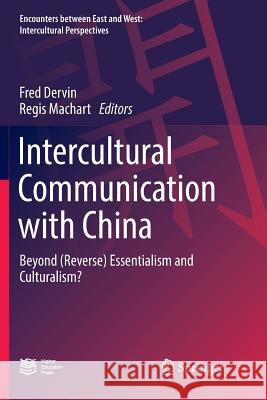Intercultural Communication with China: Beyond (Reverse) Essentialism and Culturalism? » książka
topmenu
Intercultural Communication with China: Beyond (Reverse) Essentialism and Culturalism?
ISBN-13: 9789811350245 / Angielski / Miękka / 2018 / 184 str.
Kategorie:
Kategorie BISAC:
Wydawca:
Springer
Seria wydawnicza:
Język:
Angielski
ISBN-13:
9789811350245
Rok wydania:
2018
Wydanie:
Softcover Repri
Ilość stron:
184
Waga:
0.28 kg
Wymiary:
23.39 x 15.6 x 1.07
Oprawa:
Miękka
Wolumenów:
01
Dodatkowe informacje:
Wydanie ilustrowane











